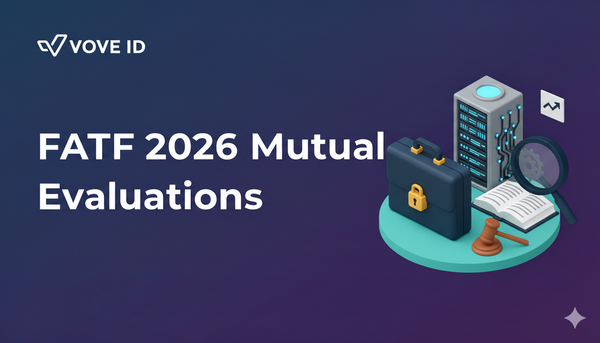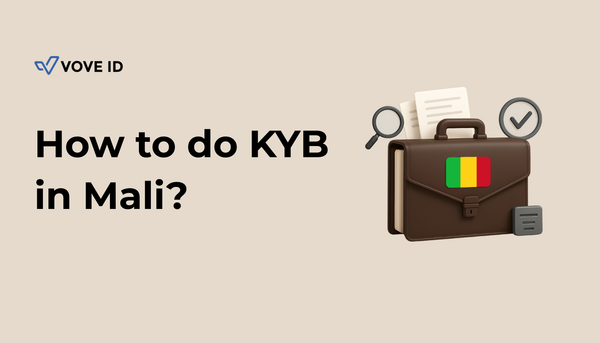AML Compliance in the Democratic Republic of Congo: 2025 Guide for Fintechs and Startups
Stay compliant in the Democratic Republic of Congo with our 2025 AML guide. Learn about FATF/GABAC recommendations, national laws, and digital solutions for fintechs and regulated businesses.
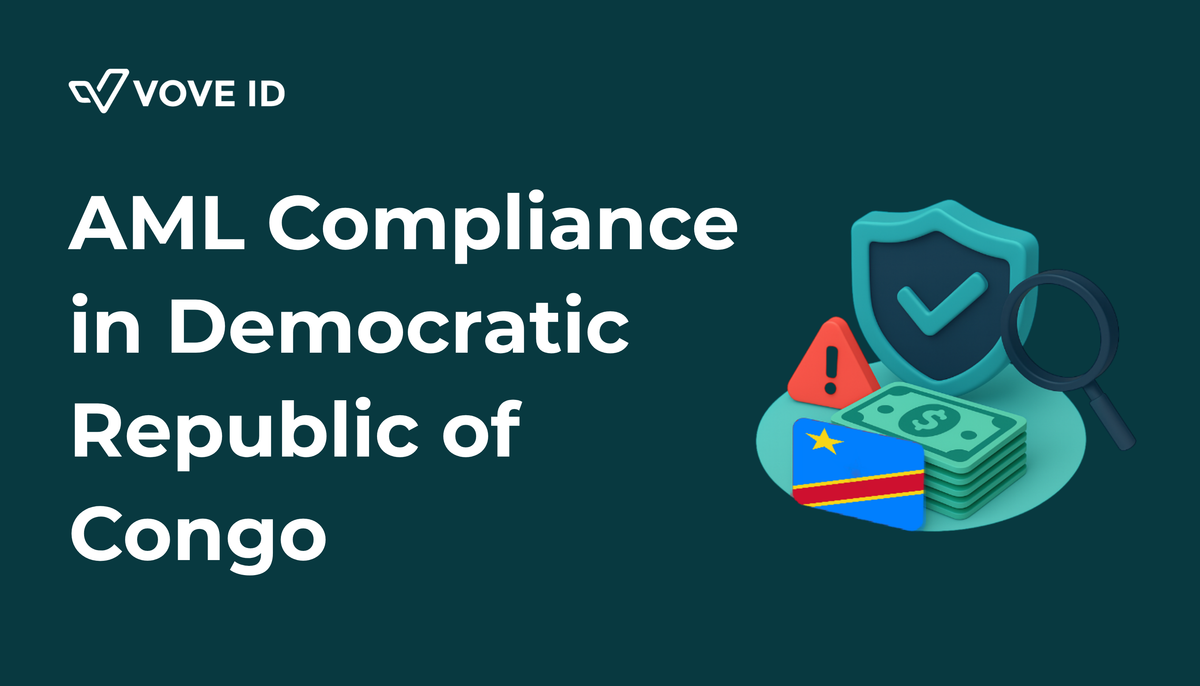
The Democratic Republic of Congo (DRC) is undergoing a digital transformation, with fintech and mobile money driving financial inclusion in a cash-heavy economy. Despite challenges like political instability and infrastructural gaps, the DRC’s 47% mobile penetration rate (GSMA, 2024) signals strong potential for Foreign Direct Investment (FDI) in mobile-driven services. Robust Know Your Customer (KYC), Know Your Business (KYB), and Anti-Money Laundering (AML) compliance is essential for fintechs and startups to build trust, meet international standards, and attract investors. Platforms like VOVE ID offer AI-powered tools to streamline compliance, ensuring secure and efficient onboarding in this complex market.
Regulatory Framework
The DRC’s AML and Countering the Financing of Terrorism (CFT) regime is shaped by domestic laws and regional oversight:
- Law No. 04/016 (2004), amended by Law No. 16/002 (2016), establishes the foundation for AML/CFT measures, requiring customer due diligence and suspicious transaction reporting.
- Law No. 22/068 (December 2022) strengthens the framework by banning anonymous accounts, expanding regulated entities (including fintechs, casinos, and real estate), and enhancing Politically Exposed Persons (PEP) checks. It aligns with FATF’s 40 Recommendations and UN Security Council resolutions.
- The Cellule Nationale de Renseignements Financiers (CENAREF), the DRC’s Financial Intelligence Unit, oversees Suspicious Transaction Reports (STRs) and combats money laundering and terrorist financing.
- The Banque Centrale du Congo (BCC) supervises banks, microfinance institutions, and mobile money providers, enforcing risk-based KYC/AML rules via BCC Instruction No. 15.
- Regionally, the DRC is an associate member of the Groupe d’Action contre le Blanchiment d’Argent en Afrique Centrale (GABAC), aligning with FATF standards.
- The DRC has been on the FATF grey list since October 2022 due to deficiencies in AML/CFT effectiveness, as noted in the 2021 Mutual Evaluation Report, requiring enhanced monitoring.
KYC, KYB, and AML Processes in the DRC
Compliance requirements for regulated businesses include:
- KYC (Individuals): Verification using official documents like national ID cards, passports, voter cards issued by the Commission Electorale Nationale Indépendante (CENI), or driver’s licenses. Enhanced Due Diligence (EDD) is mandatory for PEPs and high-risk customers.
- KYB (Businesses): Entities must provide registration details and beneficial ownership information from official registries, though fragmented and outdated systems pose challenges.
- AML Measures: Customer Due Diligence (CDD) and EDD are required for high-value or suspicious transactions, with STRs filed to CENAREF. Records must be retained for 10 years after account closure or relationship termination.
While eKYC is encouraged by the BCC and international donors to meet FATF goals, limited API access to government registries forces reliance on manual verification. VOVE ID’s biometric and AI-driven solutions help fintechs automate KYC and KYB, reducing compliance friction while meeting BCC and CENAREF standards.
Read more:
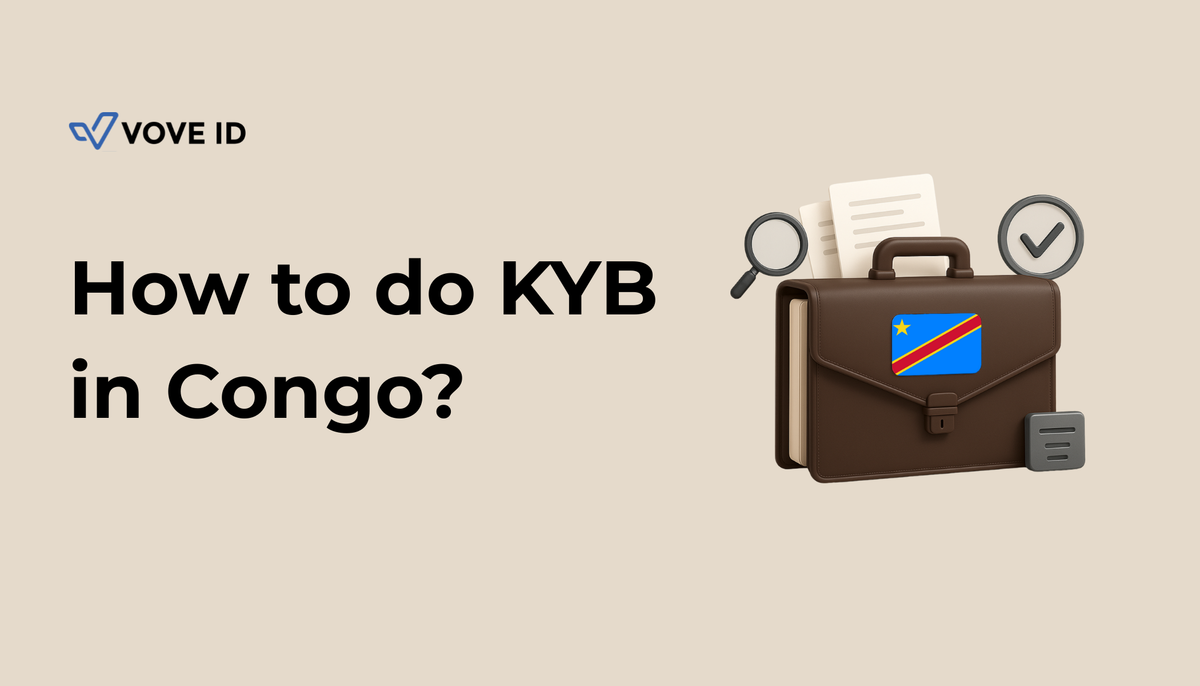
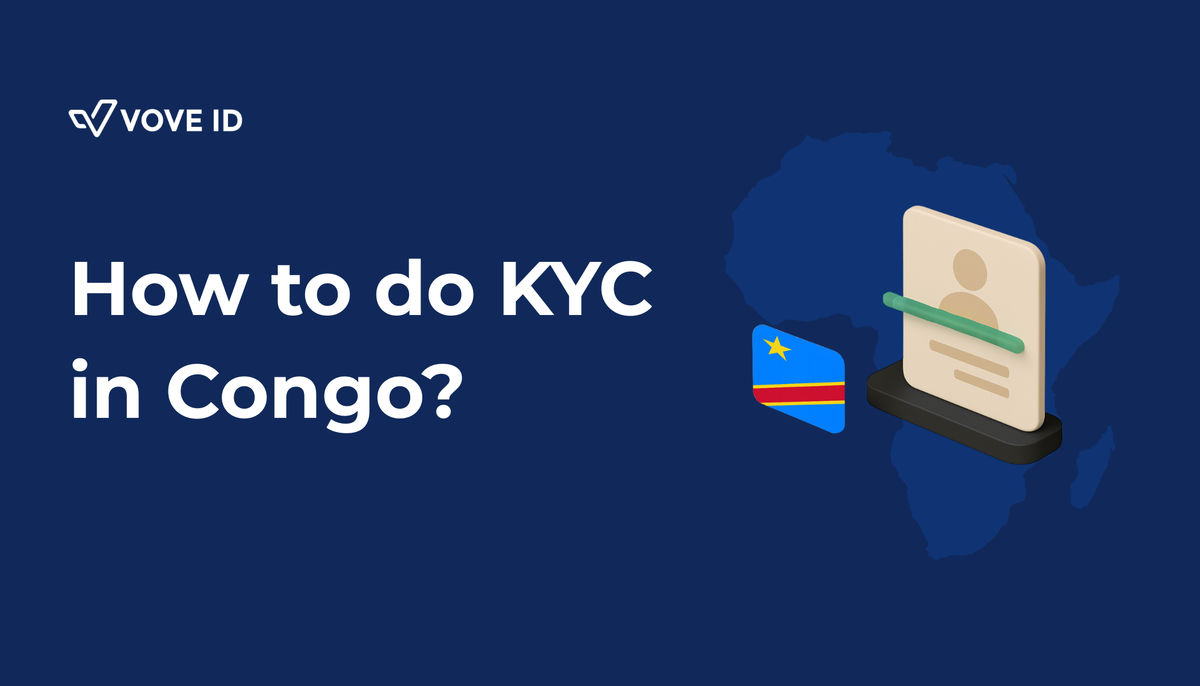
Key Challenges for Businesses
Operating in the DRC presents several obstacles:
- Limited ID Coverage: Over 60% of the population lacks formal identification, complicating onboarding.
- Cash-Based Economy: Over 80% of transactions are cash-based, increasing money laundering risks and hindering traceability.
- FATF Grey List Scrutiny: The DRC’s status since 2022 demands stricter compliance, raising costs and expectations for startups.
- Technological Gaps: Limited digital infrastructure and fragmented registries slow down KYC/KYB processes.
- Corruption Risks: Systemic issues, such as those highlighted in investigations like The Sentry’s “Bank Scandal in Congo,” underscore the need for robust compliance to avoid reputational and legal risks.
Over 80% of transactions in the DRC are cash-based, posing significant AML challenges compared to digital-first economies (Basel AML Index, 2024). A $10,000 cash transaction limit aims to enhance traceability.
Opportunities and Trends
Despite challenges, the DRC offers significant opportunities:
- Mobile Money Growth: Platforms like M-Pesa and Airtel Money are expanding, with mobile wallets driving financial inclusion for the 60% unbanked population.
- Biometric Solutions: Adoption of biometric ID verification is increasing, enabling secure eKYC.
- AI-Driven Compliance: Tools for automated screening and risk assessment streamline KYB and AML processes.
- FDI Prospects: Stronger compliance frameworks boost investor confidence in fintech, mobility tech, and gig-economy platforms.
Role of Technology
Digital identity solutions are critical for addressing compliance gaps. VOVE ID’s eKYC tools offer biometric verification, beneficial ownership checks, and AML screening, ensuring alignment with FATF, BCC, and CENAREF standards. These solutions enable fintechs and startups to onboard users securely, whether in Kinshasa or rural areas, fostering trust and scalability.
Conclusion
The DRC is at a pivotal moment in its financial evolution. While challenges like limited ID coverage and a cash-based economy persist, reforms like Law No. 22/068 (2022) demonstrate a commitment to strengthening AML/CFT frameworks. For fintechs, startups, and investors, KYC, KYB, and AML compliance are essential for navigating regulatory scrutiny and unlocking growth. By leveraging digital identity platforms like VOVE ID, businesses can achieve faster, compliant onboarding, attract FDI, and contribute to a more inclusive financial ecosystem in the DRC.
What role do regional banks play in supporting AML compliance in the DRC?
Regional banks, such as those in the Central African Economic and Monetary Community (CEMAC), often collaborate with DRC institutions to share best practices and align with GABAC’s AML/CFT guidelines, helping fintechs adopt standardized compliance protocols.
How does the DRC’s mining sector impact KYC/KYB requirements?
The DRC’s mining industry, a major economic driver, increases KYB scrutiny due to risks of illicit financial flows, requiring businesses to verify supply chain partners and beneficial owners to prevent sanctions evasion.
Are there penalties for non-compliance with AML regulations in the DRC?
Non-compliance with AML laws can result in fines, license revocation, or criminal charges under Law No. 22/068, with CENAREF actively pursuing enforcement against entities failing to report suspicious transactions.
Ensure your business stays ahead of AML regulations in the DRC.
Discover how VOVE ID can help you streamline compliance and strengthen customer trust.



